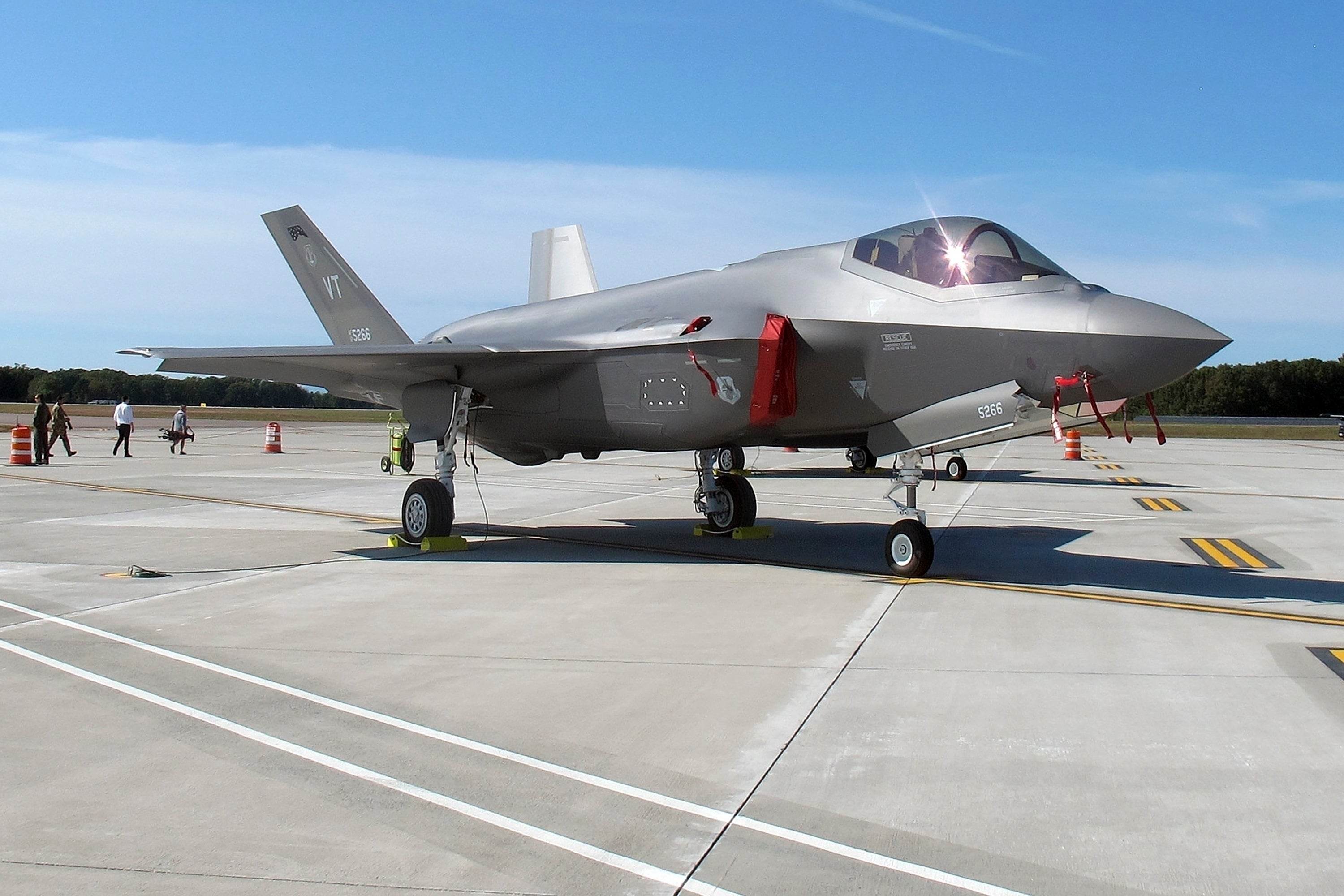F-35 production halts as Pentagon investigates part produced with Chinese alloys
The plane includes other magents — also made from Chinese-produced alloys — that have been cleared for use

Your support helps us to tell the story
From reproductive rights to climate change to Big Tech, The Independent is on the ground when the story is developing. Whether it's investigating the financials of Elon Musk's pro-Trump PAC or producing our latest documentary, 'The A Word', which shines a light on the American women fighting for reproductive rights, we know how important it is to parse out the facts from the messaging.
At such a critical moment in US history, we need reporters on the ground. Your donation allows us to keep sending journalists to speak to both sides of the story.
The Independent is trusted by Americans across the entire political spectrum. And unlike many other quality news outlets, we choose not to lock Americans out of our reporting and analysis with paywalls. We believe quality journalism should be available to everyone, paid for by those who can afford it.
Your support makes all the difference.Production on the F-35 family of jets, which is flown by the US Air Force, Marines and Navy, has come to a halt after it was discovered one of its parts relied on materials produced in China.
Breaking Defense reports that one of the aircraft's components relies on an alloy made in China. It use may run afoul of federal regulations that limits the production of items used in military applications if the producers do not have proper security clearances.
Production and delivery of the aircraft has been halted by the Pentagon until the Defense Department can complete an inquiry into the material.
The alloy is part of a magnet used in the F-35's turbomachine, which is essentially a powerplant that allows the plane's engine to start and provide power during ground maintenance procedures.
The Defense Federal Acquisition Regulations Supplement dictates which entities can contract with the government to ensure only approved groups work on projects involving sensitive information.
A spokesman for the Pentagon, Russell Goemaere, told The Hill that the part's inclusion in the planes did not put the pilots at risk and was not a risk to national security.
“We have confirmed that the magnet does not transmit information or harm the integrity of the aircraft and there are no performance, quality, safety, or security risks associated with this issue and flight operations for the F-35 in-service fleet will continue as normal,” he said.
According to Reuters, there are other magnets used in the F-35 that utilise Chinese-made materials. Those magnets were approved for use after the Defense Department waived limitations on their implementation.
It is possible that the Pentagon will do the same for the turbomachine magnet.
Laure Siebert, the spokesperson for Lockheed Martin, said Honeywell, the company that produces the F-35's turbomachine, was made aware of the part and has already sourced a new provider for the allow needed for the magnet.
“Honeywell has stopped work with the supplier providing alloy, and an alternative U.S. source is already on order with anticipated delivery next month,” she said.
The investigation continues in the meantime, leaving the current fate of F-35 production up in the air.
Join our commenting forum
Join thought-provoking conversations, follow other Independent readers and see their replies
Comments